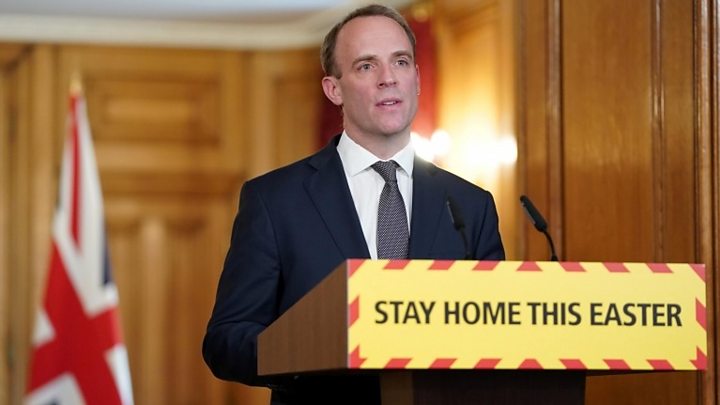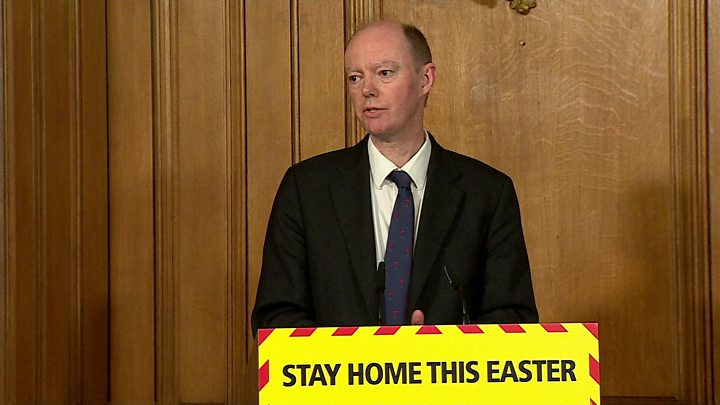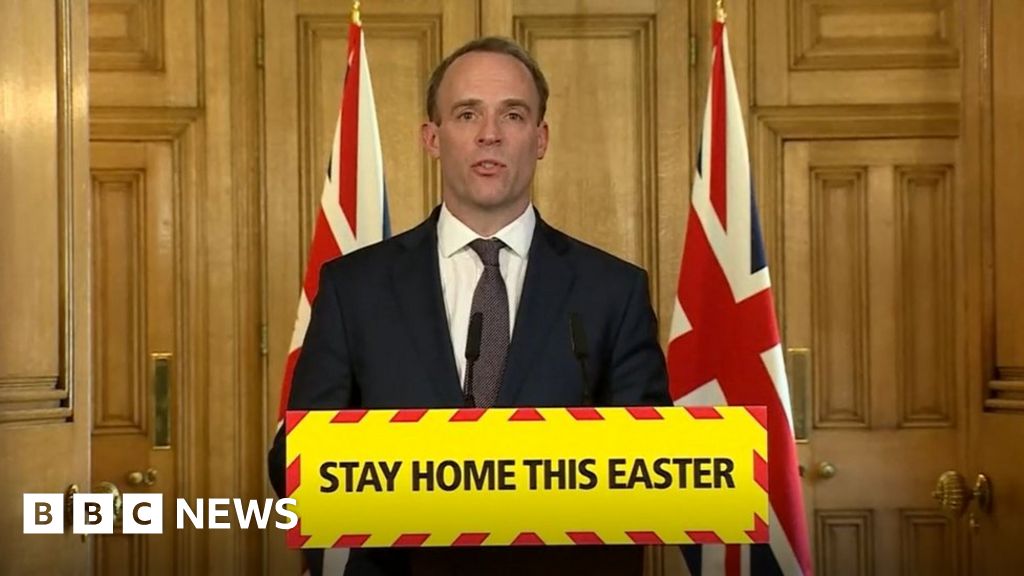Justin Setterfield
Getty Images
Taxi driver Michael Hayes has been offering free rides home to health workers at Newham University Hospital in East London.
LONDON — When the British government asked people to help the National Health Service during the coronavirus crisis, it called for a “volunteer army.” Within four days, 750,000 people had signed up — three times the original target and four times the size of the British armed forces.
Britain hasn’t seen such a surge in volunteers since World War II, when the country pulled together in a way still remembered with immense pride. Now — with more than 60,000 people here having tested positive for the novel coronavirus, and with the prime minister among those who have been hospitalized — organizers are figuring out how to deploy the army, while individuals and companies are engaged in informal volunteer activities throughout the British Isles.
Michael Hayes, 55, is a taxi driver who joined the volunteer army and is awaiting his first official assignment. In the meantime, he spends about five hours a day driving NHS staff home, at no cost, from Newham University Hospital in East London, where his three children were born.
“Some of them come out, they’ve had dreadful days, the worst . . . and they are walking out thinking, ‘I still got to get home,’ I’m sort of like a little ray of sunshine,” Hayes said. “They see me sitting there and I whiz them home.”
Justin Setterfield
Getty Images
Michael Hayes waits outside Newham University Hospital. He has also answered a separate volunteer initiative run by the Royal Voluntary Service and is awaiting his assignment.
The organizers of the government effort said they were “starting slowly” with a soft launch last week, and an official launch Tuesday, when “thousands” of volunteers were offered assignments.
They aren’t involved in medical care. Another 12,000 former NHS workers said they would come back for that. Rather, the volunteers are supposed to help the elderly and others deemed especially vulnerable to the virus by doing such tasks as delivering groceries and medicine, driving people to appointments and conducting check-ins on those in self-isolation.
[Retired doctors in Italy are heading back into the fray to treat coronavirus patients]
“I was so excited I pushed ‘accept’ before I even read the job,” said Steve Pepper, 34, a warehouse manager in Norfolk who got a ping Sunday evening. The request: Buy groceries for a man with covid-19 symptoms who lived about a quarter-mile away.
Pepper said he hesitated over the question of how to pay. “I can’t afford to risk buying groceries for everyone around town,” he said. But he went ahead and spent $36 for “bread, milk, comfort food.” He said the recipient transferred him the money shortly after he dropped the groceries off outside of his door. Pepper said organizers called him to say next time he should use payment methods on their site.
“I think they are still fine-tuning it — this is my one and only task. But it was really good to get out there and finally help someone,” he said.
Starting this week, health professionals, pharmacists and local government authorities can upload requests to an app called GoodSam, which then connects them to an approved volunteer.
Julian Finney
Getty Images
A volunteer from GoodGym takes an order from a woman who can’t leave her house.
Many people are still waiting for assignments, and some have taken to social media to express confusion or frustration that their offer of services has so far been rejected or ignored.
Those who work in the volunteer sector say that the logistics of mobilizing 750,000 people, vetting volunteers, matching supply and demand, and ensuring that everyone is safe is a huge endeavor.
“I have admiration for how they have done it, but it’s a big task for anyone,” said Mark Lever, chief executive of Helpforce, a charity that works with volunteers in the NHS but isn’t involved in this particular project. “A big challenge is matching supply of volunteers, with the demand for their support. You could have loads of volunteers, but in the wrong place. Or volunteers happy to do three things, but your need is for the fourth one.”
Matthew McMurray, an archivist at the Royal Voluntary Service, a charity helping to organize the effort, said that one of the parallels between World War II and today is that a spike in volunteering followed a specific event. McMurray said that after bombs began falling in January and February of 1940, volunteers signed up in droves. Likewise, he noted that the government’s call for volunteers came the day after lockdown measures were announced. “People need to see a crisis and experience it,” he said.
[In fight against coronavirus, the world gives medical heroes a standing ovation]
Up and down the country, individuals and companies are doing their part — including helping local charities and organizing neighborhood WhatsApp groups. In West Sussex, Rolls-Royce Motor Cars has made its fleet of autos, including limousines, available for essential deliveries. In London, museums have donated masks and gloves they normally use to handle artwork. In Cornwall, a volunteer group called Flu Friends — formed 10 years ago to help ill and isolated people during the swine flu pandemic — is back in action in the rugged tip of England.
Julian Finney
Getty Images
A runner from GoodGym returns from delivering food to a woman in London.
GoodGym is a charity group that for years combined exercise and outreach with runners as fleet-footed do-gooders completing fix-it jobs for the community. Now, its runners are answering a spike in food and pharmacy delivery requests.
“What I’m amazed about is people’s appetite for doing this under difficult circumstances,” said founder Ivo Gormley.
Damian Lewis, the British star of the drama series “Homeland,” and his wife, actress Helen McCrory, count dozens of NHS doctors and nurses as their London neighbors. McCrory is the daughter of a retired NHS worker, as well. At first, the couple sent pizzas to local hospitals to show their support. Then, with comedian Matt Lucas, they created FeedNHS to raise money — over $1 million so far — and partnered with fast-food chain Leon with the goal of delivering 6,000 meals a day.
“I don’t think NHS will mind me saying this: It’s not known for the quality of its food. And there are only so many grilled cheese sandwiches you can eat,” Lewis said.
John Vincent, Leon’s chief executive, said the teams were working flat out. Everyone’s contribution is seen as vital, he said: “I think it is waking people up. . . . We are learning about reconnecting with each other.”
George Selley
Lucy Zacaria and Andy Smith work as volunteers from the Imperial Health Charity, receiving food at Charing Cross Hospital from FeedNHS.
Tom George, 50, retired deputy commissioner for the London Fire Brigade, signed up to be an NHS volunteer and has had his app set to “on duty” for over a week, waiting for the siren to ring. In the meantime, he’s helping out his neighbors and his mother.
“In Britain, when we need to, when the going gets tough, most people want to help where possibly they can,” he said, adding, “everyone is locked down anyway, so in that sense, I’m not surprised that 750,000 have signed up.”
Read more
Meals on Wheels volunteers are staying home. College kids are filling the gap.
A Virginia man wanted to help those in need. He surprised shoppers by paying for their groceries.
How you can help during the coronavirus outbreak
Today’s coverage from Post correspondents around the world
Like Washington Post World on Facebook and stay updated on foreign news
Let's block ads! (Why?)
https://news.google.com/__i/rss/rd/articles/CBMirwFodHRwczovL3d3dy53YXNoaW5ndG9ucG9zdC5jb20vd29ybGQvZXVyb3BlLzc1MDAwMC1wZW9wbGUtdm9sdW50ZWVyZWQtdG8taGVscC1icml0YWlucy1uaHMtbm93LXRoZXlyZS1iZWluZy1kZXBsb3llZC8yMDIwLzA0LzA4LzVhMTA2NzY2LTcyOWItMTFlYS1hZDliLTI1NGVjOTk5OTNiY19zdG9yeS5odG1s0gEA?oc=5
2020-04-09 18:57:15Z
CAIiEAbfAscItAzAh-SSV9u61XAqGAgEKg8IACoHCAowjtSUCjC30XQwn6G5AQ



